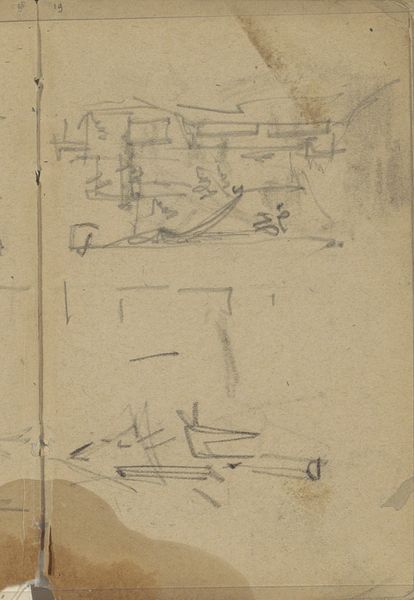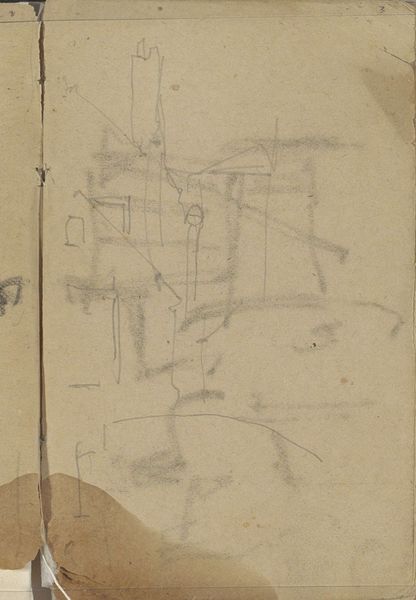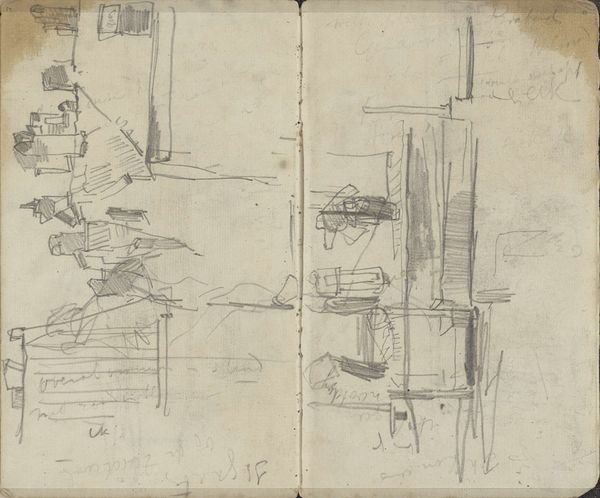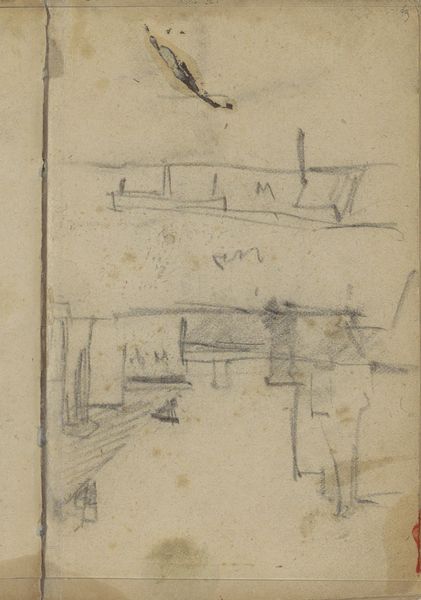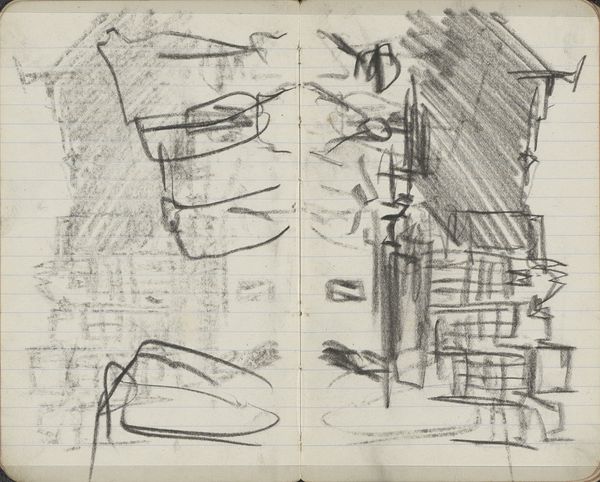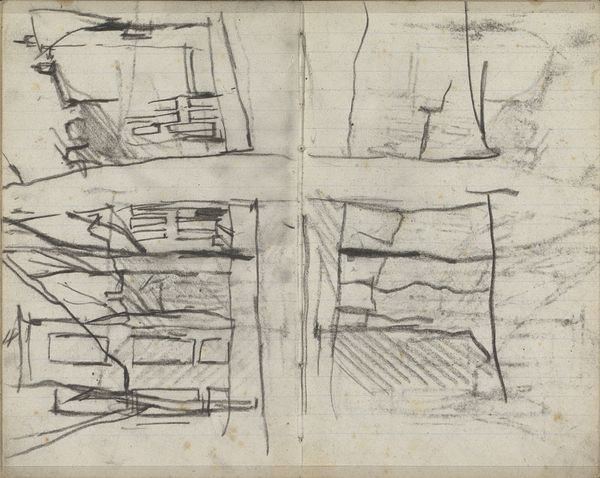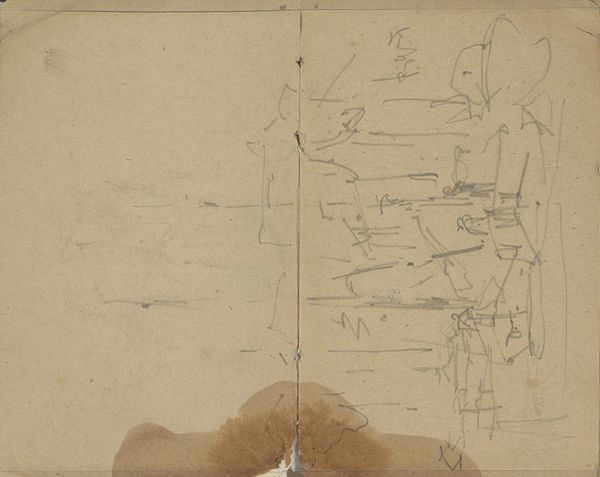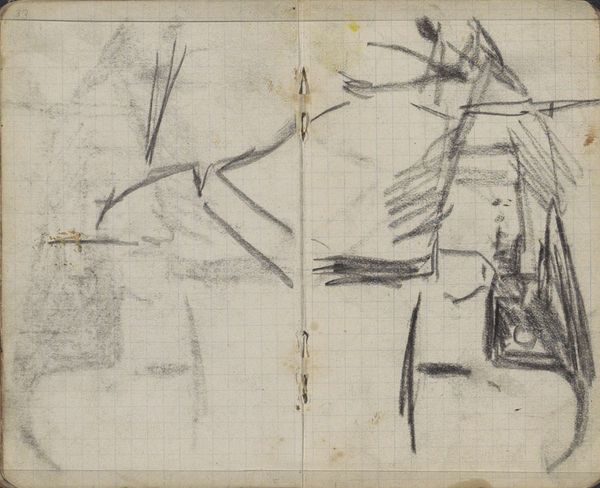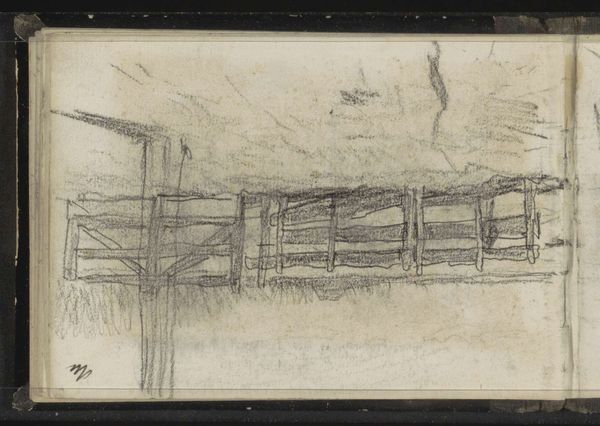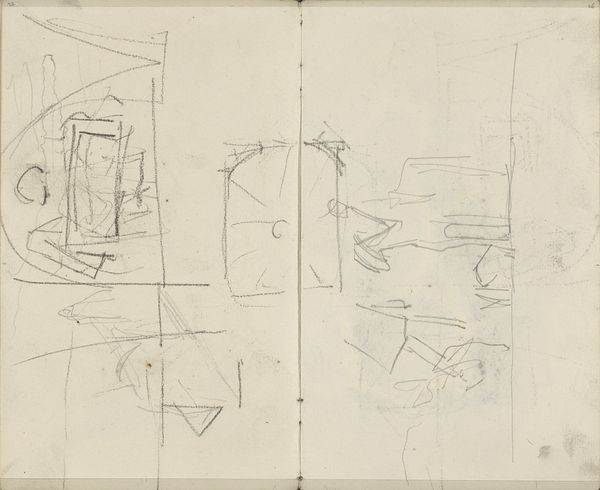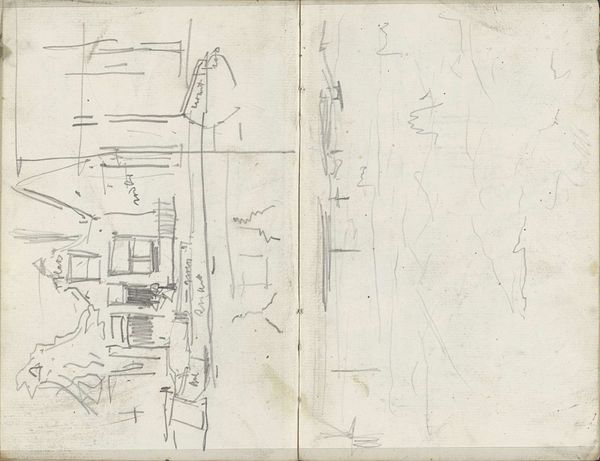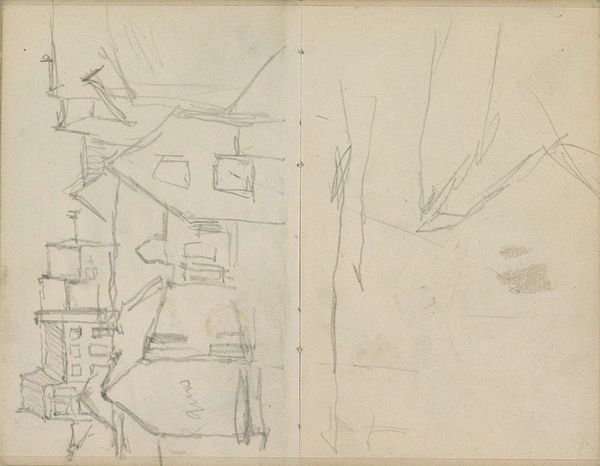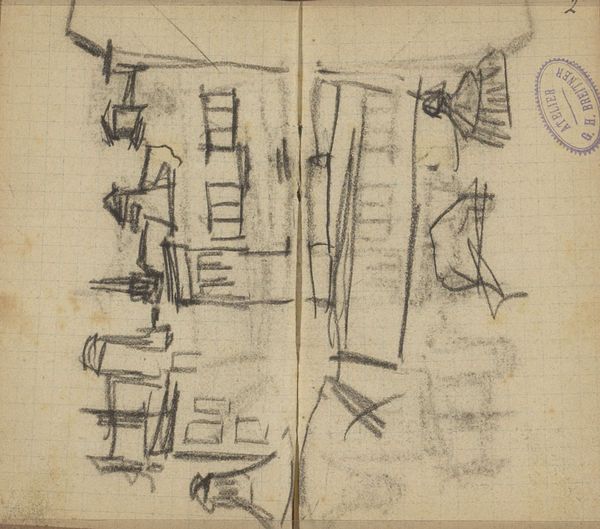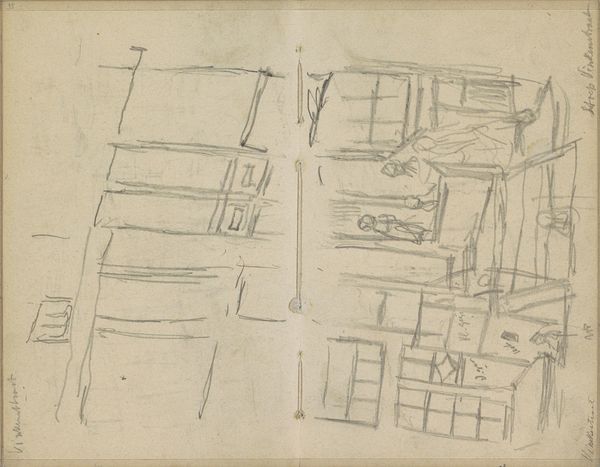
drawing, pencil
#
drawing
#
amateur sketch
#
aged paper
#
toned paper
#
dutch-golden-age
#
impressionism
#
sketch book
#
incomplete sketchy
#
hand drawn type
#
landscape
#
personal sketchbook
#
fading type
#
pencil
#
line
#
sketchbook drawing
#
cityscape
#
sketchbook art
Copyright: Rijks Museum: Open Domain
Editor: Here we have "Gezicht op een stad of dorp," or "View of a City or Town," by George Hendrik Breitner, dating from 1881 to 1883. It's a pencil drawing on toned paper. It’s really just a quick sketch, quite ephemeral feeling. What strikes you about this work? Curator: Well, Breitner, though associated with the Amsterdam Impressionism movement, often grounded his art in social reality. This sketch, likely from a personal sketchbook, hints at a deeper relationship with the urban environment. Editor: How so? It seems almost unfinished, more of a fleeting impression than a considered statement. Curator: Exactly! The unfinished quality points to its intimacy. Sketchbooks were often spaces for private exploration, free from the pressures of the market. This suggests Breitner was using drawing not just as a preparatory tool but as a way to process the rapidly changing urban landscape he was witnessing. Think about the social disruptions caused by industrialization. Could this sketch be a quiet meditation on that? Editor: So, the incomplete nature could be deliberate, reflecting a sense of transience. Did artists at the time commonly depict this sentiment in their work? Curator: It was becoming more common, especially amongst artists interested in modern life. Breitner, and others, were challenging academic painting which focused on history, mythology and genre and embracing gritty everyday realities. They were acutely aware of time and movement. Also, look at how this artwork would function inside the public sphere; museums acquire sketchbooks of famous artists in order to demonstrate the process of artistic production to mass audiences. Editor: That’s fascinating. I hadn't considered how a seemingly simple sketch could reflect so much about artistic intention and the broader social context. I will consider artistic agency more deeply in the future. Curator: Precisely. The politics of imagery extends to how we interpret even the most unassuming sketches.
Comments
No comments
Be the first to comment and join the conversation on the ultimate creative platform.
